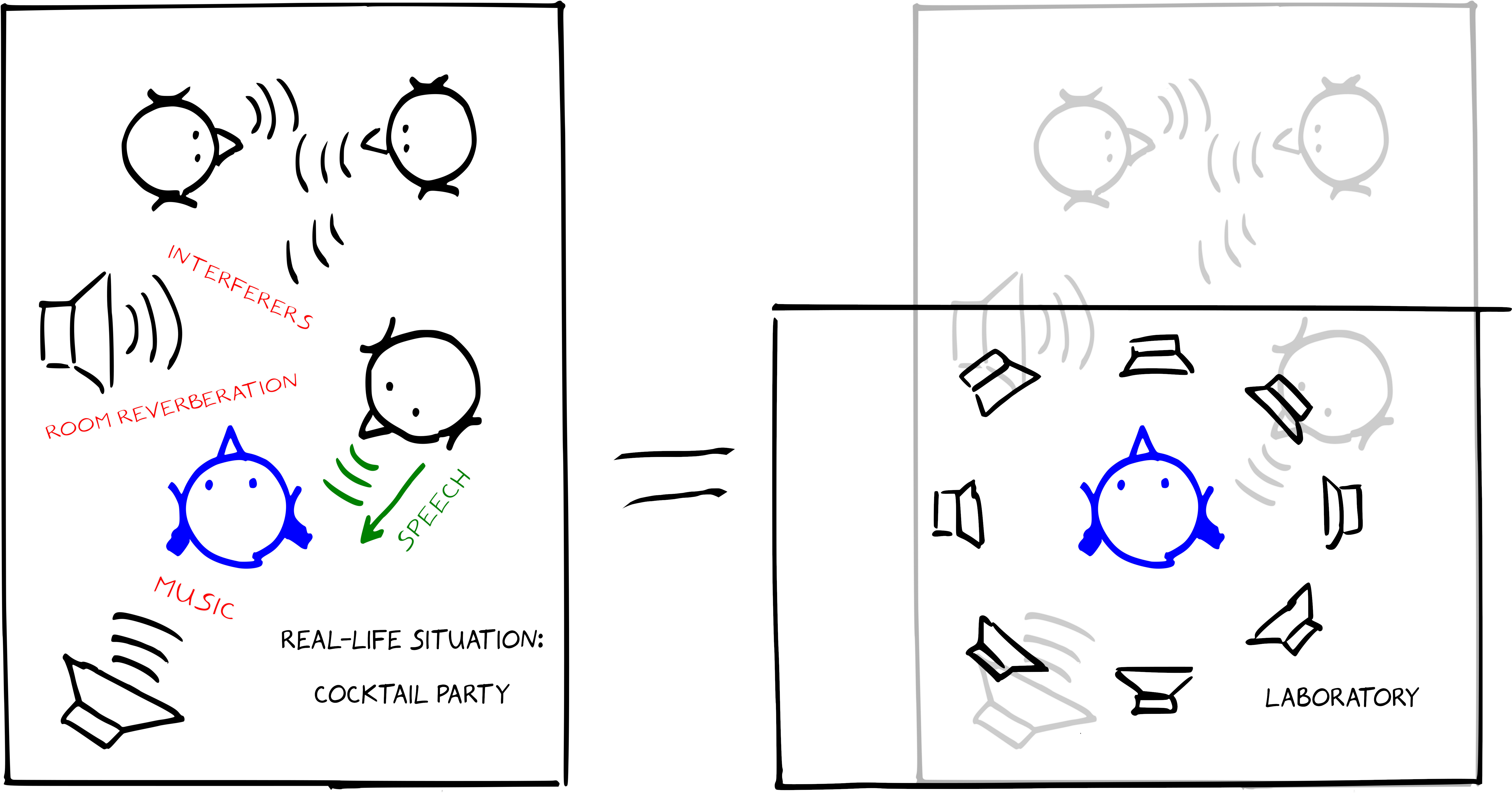CENTRALE LYON - Postdoc Real-Time Massive Multichannel Adaptive Filtering Techniques
- On-site
- Ecully, Auvergne-Rhône-Alpes, France
- €30,000 - €36,000 per year
- LMFA - Laboratoire de Mécanique des Fluides et d'Acoustique
Duration: 18 months
Starting date: ~Mar. 2025 (flexible)
Salary: 30-36k€ / year before tax
Keywords: real-time, filtering, active control systems, acoustic
Job description
Introduction¶
In the world, over 1.5 billion people suffer from hearing loss and over 434 million require care. This number is expected to increase, and hearing loss has a significant social and economic impact.1 Hearing-impaired people struggle to communicate in everyday situations, especially in noisy or reverberant environments. 2 Hearing Aid Research is demanding high performance diagnosis tools to develop the new generation of hearing devices3 and help hearing-impaired people to participate fully in society. One such desirable tool is a Sound Field Synthesis (SFS) system that could perfectly reproduce a target sound pressure field over space and time, using a loudspeaker array (see Figure). Such system should allow for the faithful and controlled reproduction of sound field in laboratory conditions to study situations where hearing impairment is still problematic, such as low speech intelligibility performances in reverberant rooms.

Objectives¶
In this context, the ASFHEAR project aims to develop a real-time adaptive Sound Field Synthesis system for speech intelligibility studies in virtual reverberant room.
To do so three objectives are targeted:
- To develop and Adaptive SFS system where the physical accuracy between the target and reproduced sound field is maximized,
- To implement such a system and make it work in real-time,
- To use this system for speech intelligibility studies in virtual reverberant rooms.
The Different Tasks¶
The ASFHEAR project is articulated around 3 main tasks:
- WP1 : Adaptive Sound Field Synthesis algorithm
- WP2 : Real-time implementation Adaptive Sound Field Synthesis
- WP3 : Comparative studies for Speech Intelligibility in virtual rooms
This postdoctoral researcher fellowship aims at designing and implementing algorithms for massive multichannel filtering to be used in a adaptive filtering context.
Adaptive filtering is required for adaptive sound field synthesis algorithm developped in the ASFHEAR project. Usually, the adaptive filtering algorithms are formulated using Finite Impulse Response (FIR) filters.5 The larger the frequency band to be processed, the longer the FIRs (several thousand coefficients for processing speech signals). Usually, the number of convolutions increases drastically with the algorithm complexity, making the massive real-time operations unfeasible on modern controllers. We are therefore interested on developing a parallel adaptive filtering approach using Infinite Impulse Response (IIR) filters (i.e., biquad filters).6 These filters are individually inexpensive, and parallel computing is well suited to modern controllers.
The project will be segmented in 3 main tasks: 1. The first task is to provide a bibliographical survey on fast filtering algorithms, which could be implemented on a modern controller, available at the lab.8
The second task is to explore and improve current algorithms for FIR filters decomposition as parallel stable IIR filters.7
The third task is to impement on the lab controller a massive multichannel adaptive filtering process, at the heart of the adaptive SFS algorithm designed by the PhD student
Job requirements
Qualification requirements¶
PhD degree in audio signal processing, control systems,
Fluent oral and written communication skills in English,
Strong coding skills in Python and Matlab/Simulink,
Background with DSP programming or FPGA,
Laboratory experimental work background.
or
All done!
Your application has been successfully submitted!
